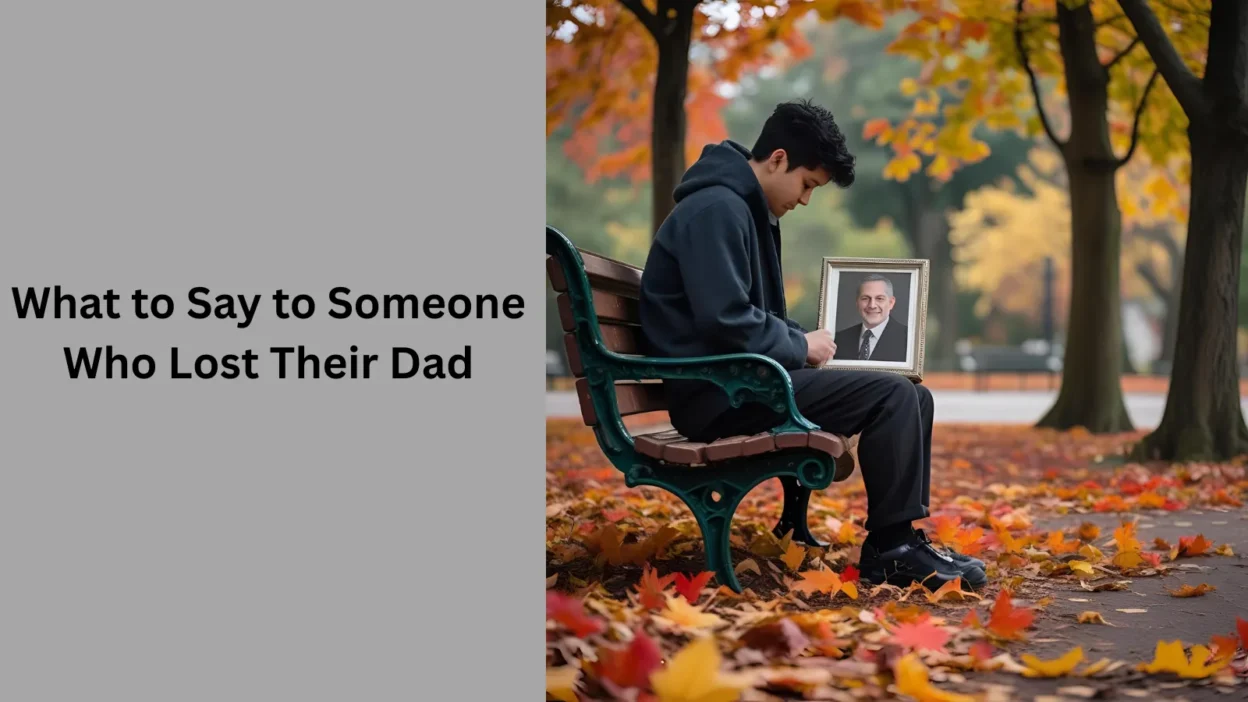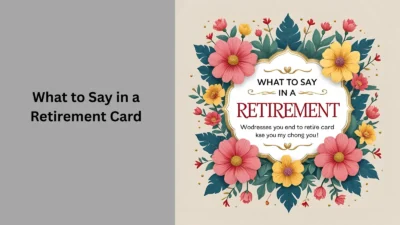Losing a dad is one of the hardest things anyone can go through. The pain feels deep, and words often seem too small to help. If you’re wondering what to say to someone who lost their dad, you’re not alone—
it’s tough to find the right words. You want to comfort your friend, family member, or coworker, but you don’t want to say the wrong thing. This guide will help you offer support with kindness and care.
We’ll share simple, heartfelt ways to show you’re there, whether through words, actions, or just listening. Let’s explore how to be a true source of comfort during this difficult time.
Acknowledge Their Loss with Kindness
When someone loses their dad, they need to know you see their pain. Acknowledging their loss is a simple but powerful way to start. Be honest and gentle, letting them know you’re thinking of them.
Scenario: Your coworker, Sarah, just lost her dad. You’re not super close, but you want to show you care.
What to say: “Sarah, I’m so sorry about your dad. I’m here if you need to talk or just want company.”
What not to say: “He’s in a better place now.” This can feel dismissive, as it assumes how they feel about death.
Keep it short and sincere. A kind word can mean the world when someone is grieving. If they want to share more, they’ll let you know. Just show you’re there without pushing.
Offer Specific Help
Grieving can make everyday tasks feel overwhelming. Instead of saying, “Let me know if you need anything,” offer specific help. This shows you’re ready to step in without putting the burden on them to ask.
Scenario: Your neighbor, Mike, is grieving his dad’s passing. He’s been quiet and seems overwhelmed.
What to say: “Mike, I’m dropping off dinner tomorrow night. Any food you prefer?” or “Can I mow your lawn this weekend?”
What not to say: “Call me if you need help.” This is vague and puts the effort on them to reach out.
Think about small, practical ways to lighten their load, like running errands or helping with chores. These actions show you’re paying attention to their needs and truly want to support them.
Share a Positive Memory
If you knew their dad, sharing a positive memory can bring comfort. It reminds them their dad’s life touched others and keeps his memory alive. Be genuine and focus on a moment that feels meaningful.
Scenario: Your friend, Emma, lost her dad, who you met at family gatherings. You remember his warm laugh.
What to say: “Emma, I’ll always remember your dad’s laugh at that barbecue. He made everyone feel so welcome.”
What not to say: “I know exactly how you feel.” Everyone’s grief is unique, and this can feel like you’re comparing losses.
If you didn’t know their dad, you can say, “I’d love to hear about your dad when you’re ready.” This invites them to share without forcing it. Memories can spark joy amid sorrow.
Listen More Than You Speak
Sometimes, the best thing you can do is listen. Grieving people often need to talk, cry, or just sit in silence. Being there without trying to “fix” their pain is a gift.
Scenario: Your cousin, Liam, lost his dad suddenly. He’s been quiet but seems like he wants to talk.
What to say: “Liam, I’m here to listen if you want to share anything about your dad or how you’re feeling.”
What not to say: “You need to stay strong.” This can make them feel like they can’t show their true emotions.
Nod, make eye contact, and let them lead the conversation. If they don’t want to talk, that’s okay too. Just sitting together can show you care. Being present is more powerful than any words.
Avoid Clichés and Comparisons
It’s easy to fall back on common phrases, but clichés can sometimes hurt more than help. Avoid sayings that minimize their pain or compare their loss to something else.
Scenario: Your classmate, Ava, is struggling after her dad’s death. You want to comfort her at school.
What to say: “Ava, I can’t imagine how hard this is. I’m here for you, no matter what.”
What not to say: “Time heals all wounds.” This feels empty when someone is in fresh grief.
Focus on their feelings, not general sayings. If you’re unsure, a simple “I’m so sorry” is better than a cliché. Sincerity matters more than trying to sound profound.
Check In After Time Passes
Grief doesn’t end after the funeral. Checking in later shows you haven’t forgotten their loss. A quick message or call can remind them they’re not alone.
Scenario: It’s been a few months since your friend, Noah, lost his dad. You notice he’s still quiet.
What to say: “Hey Noah, I was thinking of you and your dad today. Want to grab coffee soon?”
What not to say: “Are you over it yet?” Grief has no timeline, and this can feel insensitive.
A simple text or note can mean a lot. Mention their dad’s name if it feels natural—it shows you remember him. Ongoing support helps them feel seen.
Final Thoughts
Knowing what to say to someone who lost their dad can feel overwhelming, but small, thoughtful gestures make a big difference.
Whether you’re offering a kind word, listening quietly, or helping with a task, your support shows they’re not alone. Grief is personal, so focus on being sincere and present.
Avoid clichés and keep checking in, even months later. By showing you care in these simple ways, you can bring comfort during one of life’s toughest moments. Your kindness matters more than you might realize.




